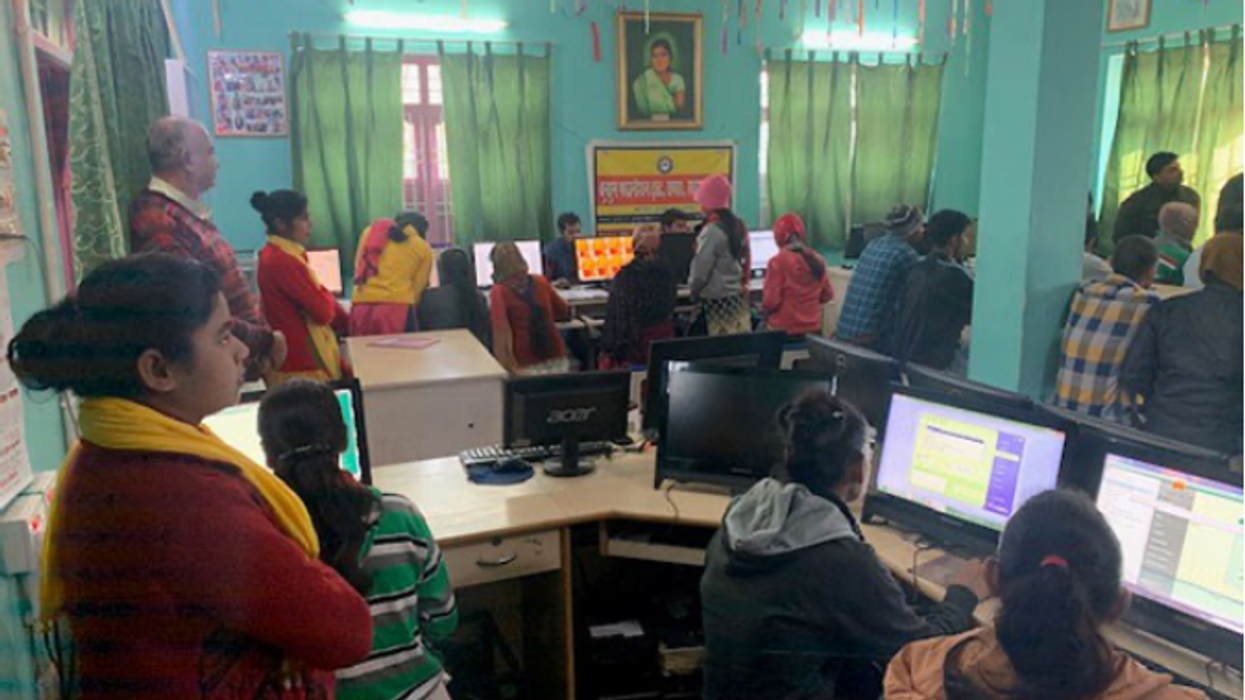A non government organisation, which provides vocational skills to underprivileged students in India’s Bihar state, has described how it continued to provide services in the community despite the coronavirus pandemic.
The Kusum Foundation, founded in 2008 by London-based banking professional Dr Anand Kumar, focuses on empowering the youth who live within a 20-mile radius of Katesar village in the state. It offers vocational skills in information and communication technologies, sewing, embroidery and art.
“During the lockdown, the training was suspended. Now classes have resumed around government guidelines. Girls are encouraged by government, society and family to study to acquire skills to become independent,” said Kumar.
Bihar, India’s third-largest state by population, has an unemployment rate of 12.7 per cent, greater than the national unemployment rate of 9.1 per cent. This is why the work of the foundation is "crucial" in the state, Kumar said.
“The Bihar government has provided bicycles to all girls attending school and there are a new desire and optimism among girls to excel and be self-reliant. Girl students cycle to the foundation, often covering distances of six to seven kilometres,” said Kumar.
“Ladies from the foundation often start their boutiques, gaining independence and working with well-earned respect and dignity. Seeing those students succeed is a good feeling.”
In 2011, the foundation had six local people on its staff, 13 computers, 15 sewing machines and one embroidery machine. Currently, there are nine staff members, 30 computers, 25 sewing machines and four embroidery machines.
More than 5,000 students, of which 60 per cent were girls, have attended its courses.
Kumar is a non-executive director and board member of Union Bank of India (UK) and First Microfinance Bank, Afghanistan. He also worked as a visiting fellow at the University of Greenwich’s Business School for 12 years.
“I learned that the primary school I had attended in Katesar was struggling to accommodate the growing number of pupils. I became involved in constructing an extra building for the school, accommodating an additional 600 pupils," said Kumar, describing how he started the foundation.
"I discovered that the IT literacy skills of students were extremely low. I asked one student to forward me his CV and discovered that he didn’t know how to write an email address. This was the moment I knew I had to set up the Foundation.”
He keeps visiting the foundation, two or three times a year. He lives in Harrow, London.





